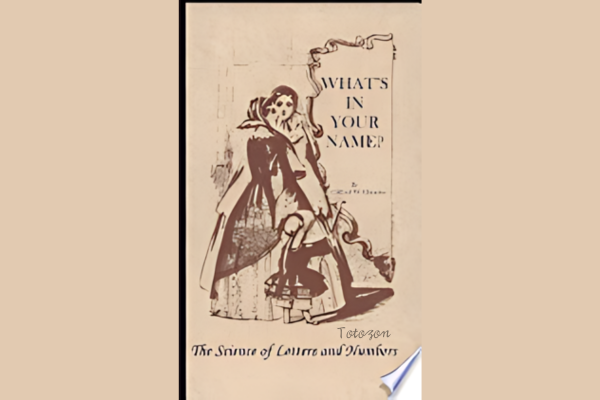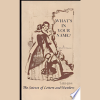Whats In Your Name – The Science of Letters and Numbers (1916)
$6.00
File Size: Cooming soon!
Delivery Time: 1–12 hours
Media Type: Online Course
What’s In Your Name – The Science of Letters and Numbers (1916)
Introduction
Have you ever wondered if your name holds more than just identity? In the seminal work from 1916, “What’s In Your Name – The Science of Letters and Numbers,” we explore the intriguing intersection of numerology and linguistics. This historical piece provides insights into how our names might influence our lives, based on their numerical significance and linguistic structure.
The Roots of Numerology
Numerology, the study of numbers and their mystical significance, dates back thousands of years. Ancient civilizations like the Egyptians and Babylonians believed that numbers had special powers. The 1916 guide delves into how these beliefs have been woven into the fabric of our names.
Understanding the Numeric Value of Letters
Each letter in our alphabet is assigned a numeric value. This section explains the method of converting letters into numbers, which is pivotal for understanding the deeper meanings hidden within our names.
Example of Name Calculation
To give you an idea, the name “Anna” might be broken down into numbers as follows:
- A = 1
- N = 5
- N = 5
- A = 1
Summing Up the Numbers
These numbers are then added together to uncover deeper implications about personality and destiny.
Historical Context and Evolution
The Emergence in Literature
This practice wasn’t just a fleeting fancy but has been referenced in numerous historical documents and literary works, showing its persistence through the ages.
Cultural Variations
Different cultures interpret the numbers in names differently. This section compares Western practices to those in Eastern cultures, highlighting the global fascination with numerology.
Scientific Perspective
While numerology is often seen as a mystical practice, the 1916 publication attempts to bridge the gap to science. It discusses patterns and statistical anomalies found when analyzing large datasets of names and birth dates.
Critiques and Acceptance
Here, we review how the scientific community responds to numerological claims, including skepticism and occasional intrigue concerning its predictive power.
Modern-Day Application
In Popular Culture
From movies to books, the concept of numerology in names has influenced various aspects of popular culture, resonating with audiences worldwide.
Practical Uses Today
People use numerology to choose baby names, change their names, or understand relationships, showing its continued relevance.
Personal Stories
Testimonials
We include anecdotes from individuals who believe their names have shaped their destinies, providing a personal touch to the discussion.
Skeptical Views
Conversely, we also explore perspectives from those who view numerology as mere coincidence, offering a balanced viewpoint.
The Future of Name Science
Technological Integration
With advancements in AI and data analytics, numerology is finding new applications in algorithms and predictive modeling, which could redefine its role in our lives.
Continued Cultural Significance
Regardless of technological advances, the cultural significance of names and their interpretations remains strong, suggesting that this fascination will persist.
Conclusion
In “What’s In Your Name – The Science of Letters and Numbers,” we are reminded of the power and mystery that may be encoded in the simplest of names. Whether one sees it as a tool for self-discovery or a topic of amusement, the discussion it generates is undoubtedly profound. As we move forward, the blend of tradition and technology will likely continue to fascinate and engage.
Frequently Asked Questions
1. Can numerology predict the future?
provides insights based on patterns and energies associated with numbers but does not predict the future.
2. How can I use numerology in my daily life?
Numerology can be used for self-discovery, improving relationships, and aligning career choices with your life’s purpose.
3. Is numerology connected to astrology?
Both numerology and astrology are ancient methods used to understand human life and destiny, but they are distinct disciplines with different methods.
4. Where can I learn more about numerology?
Numerous resources are available online, including courses, books, and articles, to deepen your understanding of numerology.
5. What makes the 1916 approach to numerology unique?
The 1916 approach combines historical numerological practices with early 20th-century mysticism, reflecting broader cultural interests in esoteric knowledge during that era.
Be the first to review “Whats In Your Name – The Science of Letters and Numbers (1916)” Cancel reply
You must be logged in to post a review.
Related products
Forex Trading
Forex Trading
Forex Trading
Forex Trading
Forex Trading
Forex Trading
Forex Trading
Forex Trading
Forex Trading
Forex Trading






















Reviews
There are no reviews yet.